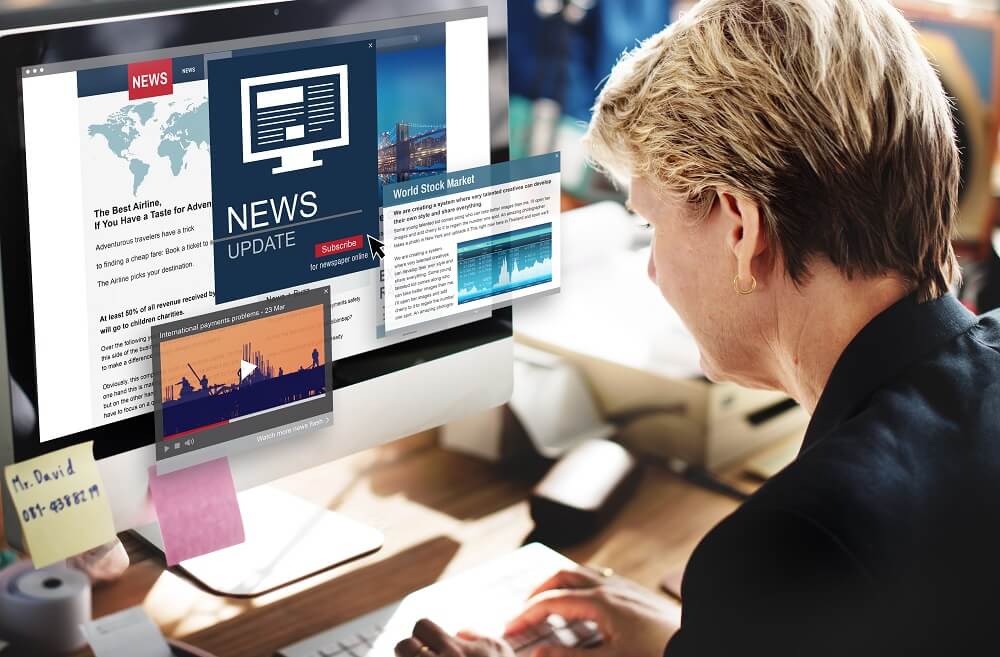The Facts About Popular News Revealed
The Facts About Popular News Revealed
Blog Article
How Popular News can Save You Time, Stress, and Money.
Table of ContentsSome Known Incorrect Statements About Popular News Not known Details About Popular News Popular News Things To Know Before You Get ThisThe 4-Minute Rule for Popular News
Age is also an element in the way individuals check out the duty of social media. Younger social media information customers are more probable to state it has influenced their understanding for the much better. Regarding half of social media news consumers ages 18 to 29 (48%) state news on social media sites makes them far better educated, compared to 37% of those 30 to 49, 28% of those 50 to 64, and 27% of those 65 and older.Reporters consider news values when determining whether or not to cover an occasion or statement. Arguably the most crucial aspect of newsworthiness is whether or not the news thing being communicated influences an information electrical outlet's audience.
Closeness is very important. Reporters want things that influence their areas. Study on a state's new tax obligation code likely won't produce the same interest throughout state boundaries. Occasionally professionals can help localize a larger national tale that influences greater than simply a city or state. In these situations, it is vital to be on the lookout for possibilities where topic professionals can provide insight or where similar tasks might be happening in your area.
If you are releasing newsworthy study, loop in MarComm prior to the write-up being published so that the pitch can stress the latest aspect of the tale: the publication of the research. Occasions and news that include top-level figures are extra likely to produce media insurance coverage. Visits from nationwide numbers frequently call for months of preparation due to anticipated community passion.
Things about Popular News
We can assist mitigate potential reputational threat with these stories while likewise increasing the chances of producing coverage. While numerous of the above information worths are interwoven, human rate of interest tales commonly stand apart.
Human interest aspects can include news value to various other tales that might show up to be doing not have in the other values. The uniqueness or quirk of a circumstance can aid influence whether or not an information electrical outlet is likely to cover a tale. While this is not an extensive listing, examining to see if your story or occasion has these qualities prior to calling us will assist you establish which aspects hold one of the most information worth.

Not known Facts About Popular News
There is additionally substantial evidence that more consumers can begin to pay for information in the futureif publishers can comprehend them and offer them well. Fifty percent of those who do not pay for information actively choose information and look like customers in different means. And virtually 2 in 10 of those that don't register for news now indicate they are inclined to start to pay in the future.
We then ask a set of inquiries to identify whether people spend for particular sorts of information resources (Popular News). We asked people to call the sources they make use of most oftenwhether they pay for them or nothow they use them, the specific points they take into consideration crucial about them, and some relevant inquiries regarding the expense and value of that resource
Individuals are attracted to news generally for two factors above others: A need to be educated residents (newspaper customers specifically are extremely motivated by this) and since the publication they subscribe to excels at covering particular subjects regarding which those subscribers particularly care. While there are a host of factors, the No.
Greater than 4 in 10 also cite the reality that loved ones register for the exact same item (Popular News). Greater than a third of individuals say they originally subscribed in reaction to a discount their website or promo. In print, people additionally are relocated greatly to subscribe to obtain vouchers that save them money, something that has untapped ramifications in digital
Some Of Popular News
Regarding half are "information candidates," suggesting they actively seek information as opposed to mostly running across it in a more passive method, though the news that nonpayers are looking for (in the meantime, at the very least) is typically about national politics. Like subscribers, a lot of these people also get information numerous times a day, utilize the news in means similar to subscribers, and have an interest in comparable topics, consisting of international or worldwide information.

Of those that do pay, 54 percent subscribe to newspapers in print or electronically, which stands for 29 percent of Americans overall. A lot of them buy a print magazine along with their newspaper and pay for two to 4 news resources in overall, some much more. And while 53 percent are veteran clients (5+ years), greater than a quarter (27 percent) have visit here acquired their paper membership within the past year.
Few print customers think it likely they will switch over to a digital-only membership in the future, and even more than fifty percent of those that prefer digital have actually never paid for a print variation of the very same resource. Totally 75 percent of paper payers claim they primarily reviewed the paper in print, while 21 percent are mainly electronic individuals, and 4 percent describe themselves as equally split.
Report this page